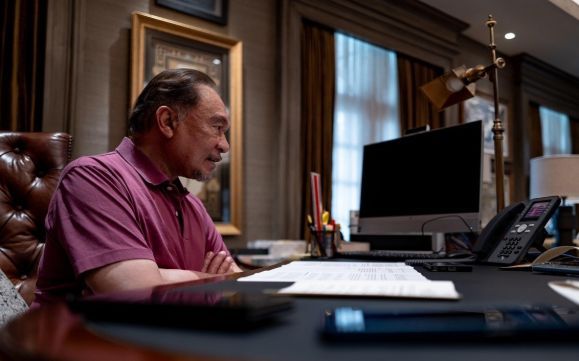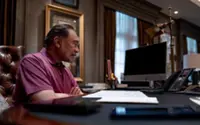KUALA LUMPUR: Several amendment bills related to child witnesses and the gathering of evidence in legal processes have been tabled for the first reading in the Dewan Rakyat.
These amendment bills were among the eight bills tabled by Minister in the Prime Minister's Department (Law and Institutional Reforms) Datuk Seri Azalina Othman Said on Tuesday (July 9).
Among them are the Evidence of Child Witness (Amendment) Bill 2024; Evidence (Amendment) Bill 2024; Oaths and Affirmations (Amendment) Bill 2024 and Sexual Offences against Children (Amendment) Bill 2024 and Security Offences(Special Measures) (Amendment) Bill 2024.
The proposed amendments particularly to the Evidence of Child Witness Act (Act 676) is to allow better provisions in connection to the evidence involving child witnesses.
“Currently, Act 676 contains provisions regarding the manner of giving evidence by a child witness whilst substantive provisions relating to the competency of a child witness and evidence of a child witness given upon oath or otherwise as well as provision on the corroboration of evidence of a child witness are specified in the Evidence Act 1950 [Act 56],” the Evidence of Child Witness (Amendment) Bill read.
Apart from the Evidence Act 1950, other legislations, namely the Sexual Offences against Children Act 2017 [Act 7921, the Oaths and Affirmations Act 1949 [Act 194), the Security Offences (Special Measures) Act 2012 [Act 747] and the Armed Forces Act 1972 [Act 77] also contain provisions on evidence given by a child witness,” it added.
The Evidence of Child Witness Act (Act 676) will be the main legislation focussing on the evidence of child witnesses. On that note, consequential amendments had to be made to the other corresponding Acts with provisions on evidence given by a child witness.
Among the substantial proposed amendments to the Evidence of Child Witness Act are a new section 2a which provides for the competency of a child witness to give evidence in any proceedings.
All child witnesses shall be presumed to be competent to give evidence in a proceeding. However, a child shall only be deemed as not being competent to provide evidence in a proceeding— if a court finds based on inquiry, that the child was not able to understand the questions raised or to provide rational answers.
The proposed new section 2B ensures that the evidence from a child witness, whether given upon oath or otherwise, is treated equally, thus enhancing the participation and protection of a child witness in a judicial process.
This section states that a child witness who has attained the age of twelve shall give evidence upon oath in a proceeding, has sufficient appreciation of the solemnity of the occasion and understands the duty of speaking the truth.
“A child witness who has not attained the age of twelve years and has no sufficient appreciation of the solemnity of the occasion and does not understand the duty of speaking the truth may give evidence not upon oath in a proceedings and the Court shall, before the child witness gives evidence, inform the child witness that he has the duty to speak the truth and require the child witness to promise to speak the truth,” the bill read.
When a child witness is giving evidence in a proceeding and in the course of giving his evidence he attains the age of twelve years, he may continue giving his evidence provided that he takes an oath and his failure to take an oath upon attaining the age of twelve years shall not render his evidence inadmissible.
“The evidence of a child witness given not upon oath under subsection (2) shall, if admitted by the Court, be treated in the same manner as if the evidence had been given upon oath,” the bill added.
The Court shall have the discretion to assess the credibility of a child witness and to determine the weight of evidence given by the child witness on a case-by-case basis.
Meanwhile, the new section 2C outlines the procedures for the Court in conducting an inquiry to determine whether a child witness is competent to give evidence in a proceeding and understands the nature of the oath when giving evidence.
This inquiry by the Court shall take place in the presence of all parties to ensure transparency and other witnesses may be called if necessary.
During the inquiry, only the Court can question witnesses to ensure the efficient conduct of the inquiry and at the same time accommodating the needs of the child witness.
With the new section 2D, an accused may be convicted or a child charged with any offence may be found guilty of an offence on the basis of the uncorroborated evidence of a child witness, whether given upon oath or otherwise—despite any conflicting provision in other written laws.
Any rule providing that an accused cannot be convicted or a child charged with any offence cannot be found guilty of an offence —on the basis of the uncorroborated evidence of a child witness given upon oath, will no longer apply.
“Clause 5 seeks to amend section 6 of Act 676 to introduce a new subsection (2) which allows a video recording of evidence of a child witness to be admitted into evidence without being accompanied by a transcript in the original language used in the video recording or translation of the original language used in the video recording, provided that the Court is satisfied that the transcript of the original language is not feasible to be prepared,” the amendment read.
Additionally, consequential to the insertion of section 2A into Act 676, this clause also seeks to delete subsection 6(7) of Act 676 on the admission of the statement of a child witness made in a video recording and subsection 6(8) on the assessment of a child witness of tender years by the Court in considering the statement made by the child witness in the video recording,” it added.










































